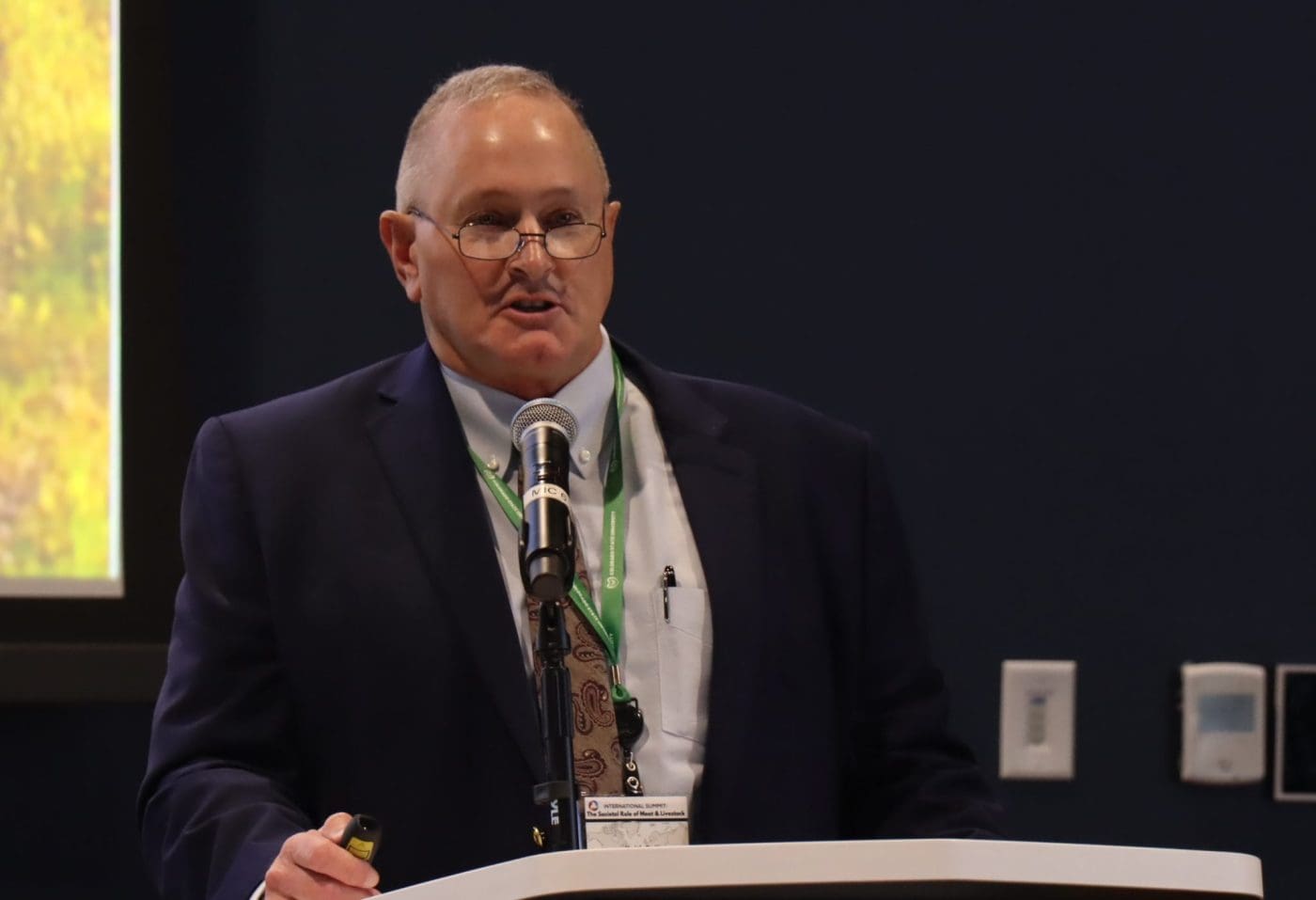A GROUP of scientists who came together in 2022 to recognise the essential role of meat and livestock have called on policy makers, media outlets and business leaders to align their action more closely with scientific evidence.
The Dublin Declaration has been signed by more than 1200 verified scientists across the globe, who were concerned about the trend towards major interventions in global food systems being formed on poorly vetted science.
They argued that: “livestock systems must progress on the basis of the highest scientific standards. They are too precious to society to become the victim of simplification, reductionism, or zealotry.”
The group’s second event in Denver last year (which Beef Central attended) focused on amplifying the message of the Declaration. It was concluded with the launch of the Denver Call for Action.
Both summits have been about exploring what scientific evidence is saying about meat and livestock.
That work has this week been published in the second special edition of Animal Frontiers – the third most-cited journal in agriculture, dairy and animal science.
In introducing the special journal, an article written by Colorado State University professor Keith Belk, with help from Swiss scientist Peer Ederer and Belgian scientist Frederic Leroy, said it was time for the work to go beyond the scientific community.
“We observe how the Dublin Declaration has raised the voice of the earnest scientific community and has emboldened scientists around the world to speak up to policy and to the public on behalf of the scientific evidence,” the article said.
“We encourage policy makers to listen carefully to those scientific commissions where the totality of the evidence is presented, outlining what is known and what is not known.”
The special addition of Animal Frontiers and the discourse of the Denver summit, had three main pillars:
A paradigmatic shift in approach to dietary guidelines’
With the identification of dietary guidelines as a way of pushing people towards certain diets that may not be grounded in good scientific evidence, the group have been pushing for a new approach that focuses on the “nourishment” and factors in individuality and cultural practices.
“With diet-related chronic diseases being on the rise even though there is more dietary advice than ever and given that most of the prevailing dietary recommendations since the 1980s are based on low-certainty evidence, a better way forward is needed,” the article said.
The Nourishment Table was released at Denver as a new approach that is not as limiting and focuses more on scientific evidence – with the journal to go further into the science underpinning it.
“It enshrines the consumer as food-sovereign, emphasizing the role of self-selection amidst a large variety of satiating and nourishing foods according to personal needs and preferences,” Prof Belk’s article said.
Fresh thinking on the ecological impact of livestock
Using work from scientists like Spain’s Pablo Manzano and Prof Ederer, the group has argued that a new way of looking at the ecological impact of science was needed.
“In many countries, public policy development and implementation are being affected by a small but vocal group of ‘cargo cult’ scientists (Ederer, 2024), as well as a larger agenda-driven peri-scientific community that proclaims that the planetary boundaries are being burst by too much livestock inventory,” Prof Belk’s article said.
“To be certain, improvements in livestock management systems worldwide are much needed. One such arena of improvement is the urgency to recognize the indispensable role of well-managed grazing ruminant herds for the restoration of soil health, biodiversity, ecological balance, hydrology, fire control, and carbon flux fixation.
“And to deploy such ruminants in sufficient numbers and with the vast amount of scientific knowledge that has been accumulated in this field in recent years.”
Doing right and communicating better
While looking at what science is saying about the role of livestock, there is also a look at the opportunity to make improvements and communicate better.
“It seems that it would be a terrifying omission if we were to feed 10 billion people of the future, to not utilize all tools in our arsenal to address food security and nutrient density concerns,” the report said.
“But, as livestock industries try to utilise the ever-evolving tools for improvement, hurdles faced due to legislation, regulation, and overall hesitance result in ‘opportunity’ losses.”
- To read the full journal click here
Previous articles from Denver
What millions of years of herbivores can tell us about reducing emissions and regenerating forests


HAVE YOUR SAY